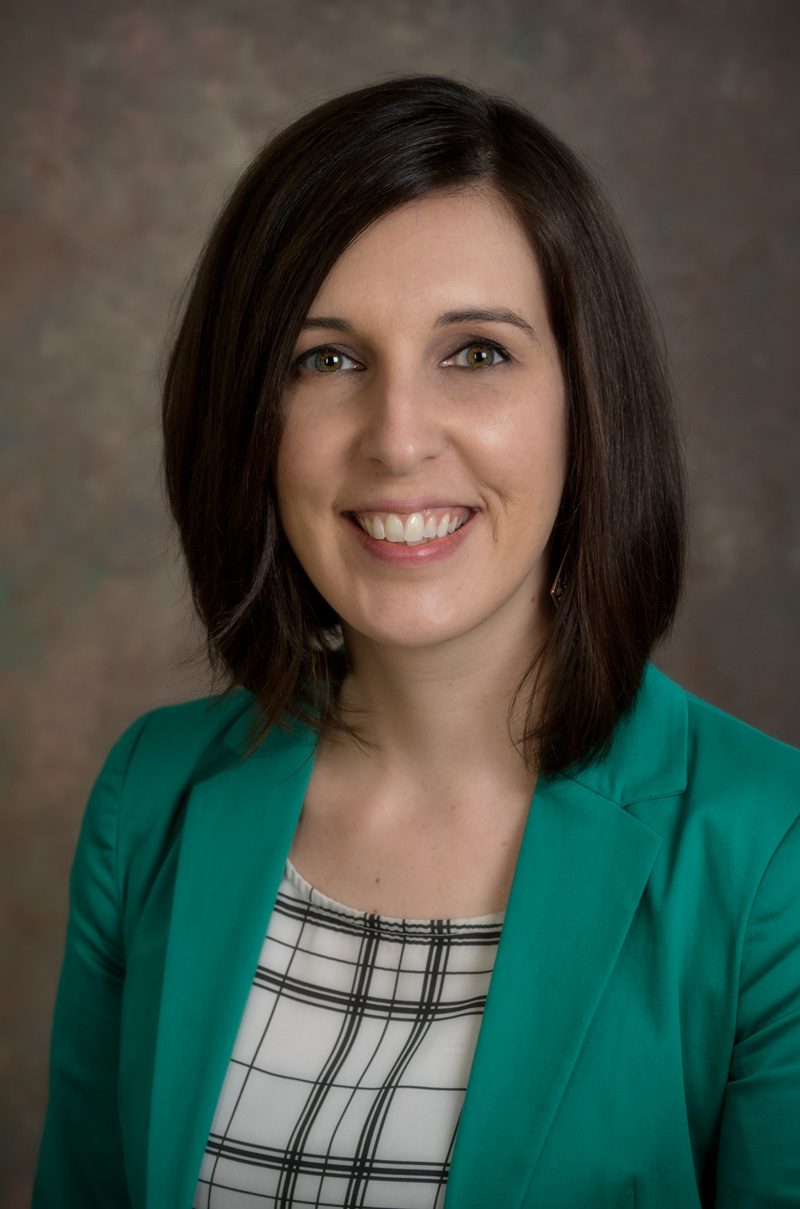


Fight back against loneliness
Illustration by Jeffrey C. Chase March 25, 2020
Research by UD’s Jaremka shows human immune systems are weakened by loneliness, stress
As you think about ways to avoid Coronavirus sickness add one more checkpoint to your list: Do you feel lonely?
University of Delaware researcher Lisa Jaremka, whose expertise is on stress and health, says that’s something to take seriously as you work to protect yourself and others from this dangerous pandemic.

You’re almost certainly more separated — physically — from others than in the past. “Social distancing” — staying home or at least six feet from others — is a new normal for millions in an effort to curtail the spread of COVID-19, the new variant of coronavirus that has upended our lives for the time being.
Social distance has the potential to affect our immune systems in important ways if we aren’t careful. Loneliness — a sense that you are disconnected from other people or that people don’t care about you and your well-being — can deliver a gut-punch to your immune system, making you more vulnerable to illness and pathogens than you would be if you felt connected to and cared for by others.
That’s a big deal right now, according to Jaremka, assistant professor of psychological and brain sciences, who has contributed much to the growing body of research on the immunological consequences of stress and loneliness in humans.
“Our experience of stress is intimately linked to how our immune system functions,” she said. “People experiencing more stress have greater immune dysregulation — meaning their immune system is not working as well — than people who are experiencing less stress. In theory, this means that one way to combat a virus is to be less stressed, because by doing so, it would lead to better immune function. That is easier said than done of course, but there are lots of empirically supported strategies for managing stress.”
Loneliness is a specific kind of stress. It’s not the same as being physically alone or isolated. It’s about a person’s perception of their relationships.
“Loneliness is a subjective state and is defined as feeling socially disconnected,” Jaremka said. “It is not about actual social contact with people or the number of people someone is friends with. It is about how a person feels in their relationships — do they feel connected to others or do they feel socially disconnected and lonely? A person could be surrounded by tons of people and still feel lonely. And particularly relevant to this pandemic, it is absolutely possible to practice social distancing or to self-isolate and simultaneously not feel lonely.”
Jaremka said one study she was part of showed lonelier people have more symptoms after being infected with the common cold virus than less lonely people.
“This implies that one way to combat a virus is to connect with other people to avoid feeling lonely,” she said. “And fortunately, we can do that even if we cannot have in-person contact with others.”
In addition to the cold-symptoms study, her research also shows that loneliness is linked to: immune dysregulation, pain, depression, fatigue, reduced cognitive function, more ghrelin (a hormone linked to hunger) and an increase in self-reported food intake. Other researchers have shown that loneliness is also linked to premature mortality, high blood pressure and worse sleep quality.
“The link between loneliness and health is pretty significant, rivaling things like smoking and inactivity,” she said. “So we need to be proactive to not become lonely while practicing social distancing. Otherwise we will have a different public health crisis on our hands down the road – dealing with the negative health consequences of loneliness.”
There are remedies and practical steps to consider, Jaremka said.
“It is possible to practice social distancing and not feel lonely if people actively connect with others in different ways,” she said. “So the act of social distancing itself isn’t what would affect us immunologically, it is how we feel about our connection to other people while we are social distancing that matters.”
Jaremka said social distancing, social isolation and loneliness are three different things.
“Social distancing is about putting physical distance between you and another person. But you can still practice social distancing and have contact with other people — at a farther physical distance or virtually,” she said. “Social isolation occurs when you have absolutely no contact with other people whatsoever. This would be akin to being in solitary confinement in prison — where you are essentially not speaking to or interacting with anyone. Loneliness is all about how a person feels. So someone could even practice extreme social distancing, like becoming a hermit in the woods, and not feel lonely if they feel close and connected to other people by knowing that other people care about them and vice versa.”
If someone feels noticeably more lonely or disconnected than usual and those feelings interfere with the ability to do normal daily activities — basic hygiene, cooking, cleaning, etc. — take that seriously.
“If we reduce loneliness our immune systems should function better,” she said.
She offered many suggestions for making virtual connections:
- Have a social event, like a wine or game night, with friends or family on Google hangouts, Zoom, Skype, or a similar online service
- Do an everyday activity, like watching a TV show or cooking, while connected to a friend or family member on Facetime, Zoom, Skype or a similar service. Netflix offers an option to watch movies virtually with friends. This might seem silly, but this type of everyday contact can go a long way.
- Create a Facebook group or email chain for people who live on your block or in your apartment complex. This is a great way to build community during a crisis and it can allow you to help each other — perhaps by getting a person in need groceries — even if you can’t connect in person
- Play a game online with someone. Try something like “Words with Friends,” where you are playing with real people (even your actual friends if you want). There are also games called MMORPGs (massively multiplayer online role-playing games) that by definition have a lot of real people online playing the game together at the same time. These games typically have rich interfaces for chatting with other people who are also playing.
- Practice mindfulness, an empirically supported way to reduce loneliness. There are many free or low costs apps that teach mindfulness.
- Rely on “social surrogates,” another empirically supported way to build feelings of social connection. Social surrogates are things we can use to take the place of actual human interaction. For example, we can get a sense of belonging by reading our favorite book or watching a favorite TV show because we connect with the characters in those stories. The sense of connection we get from social surrogates might not be the same as an in-person interaction, but it can definitely help.
- To reduce stress more generally, Jaremka pointed to research-backed strategies including physical exercise, getting into natural settings by taking a hike, speaking with a therapist (which can be done online) and getting a good night’s sleep.
Other recommendations include:
- Limiting consumption of the news. Decide how many times per day and for how long you are going to read or watch the news and stick with it. When you do check the news, focus exclusively on reputable sources. Avoid compulsively checking the news by asking yourself “is there anything I could learn that will change my behavior right now?” For many people who are already practicing social distancing and are self-isolating, the answer will be “no.” They are already doing exactly what they are supposed to be doing, and so reading or watching the news all the time may not be as important as it seems.
- Take things one day (or one hour) at a time. Thinking about the future can quickly become overwhelming, because there is a lot of uncertainty and people typically don’t do well with uncertainty. Focus on the present and on what you can do right now to stay mentally healthy and to live life as normally as possible within the new constraints we have via social distancing.
- Keep doing as many normal daily tasks as possible, including basic hygiene. By doing normal activities (showering, cleaning, cooking, work, etc.) you create balance in your life and a sense of normalcy, which is good for your mental health.
- Find something you can do that will provide a sense of purpose. Research shows people who have a sense of meaning in their lives have better mental health. What can you do to create that sense during this pandemic? Perhaps you could sew personal protection face masks or set up your home computer to help people study the virus.
Uncertainty and stress are part of this new environment, to be sure.
But Jaremka said working together to address problems can be key to navigating these changes and challenges successfully.
“This is clearly a stressful time for many people,” she said. “The future feels so uncertain and out of our control, and those feelings are the perfect recipe for stress and anxiety.
“But if we look at examples throughout the world and throughout history, we see that we will prevail if we work together and take care of each other. Large-scale crises have a way of bringing people together in ways that may have been previously unimaginable, and I think we are already starting to see signs of that in this crisis.
“Even though we can’t physically be together with other people, we can still rely on each other for support to get through this crisis and support each other through these difficult times. I encourage each and every person reading this article to create a sense of community in their own lives and the lives of people around them. What can you do to support others and make sure you are getting the support you need as well? We can and we will get through this if we work together.”
About the researcher
Lisa Jaremka is an assistant professor of psychological and brain sciences at the University of Delaware, with expertise in social psychology and the physiological consequences of negative personal interactions. She earned her bachelor’s degree in psychology at the University of Buffalo (State University of New York) and her doctorate in social psychology at the University of California, Santa Barbara. After postdoctoral work at The Ohio State University, she worked at the Institute for Behavioral Research Medicine, focusing on psychoneuroimmunology. She is the director of UD’s Close Relationships and Health Lab.
Contact Us
Have a UDaily story idea?
Contact us at ocm@udel.edu
Members of the press
Contact us at 302-831-NEWS or visit the Media Relations website

